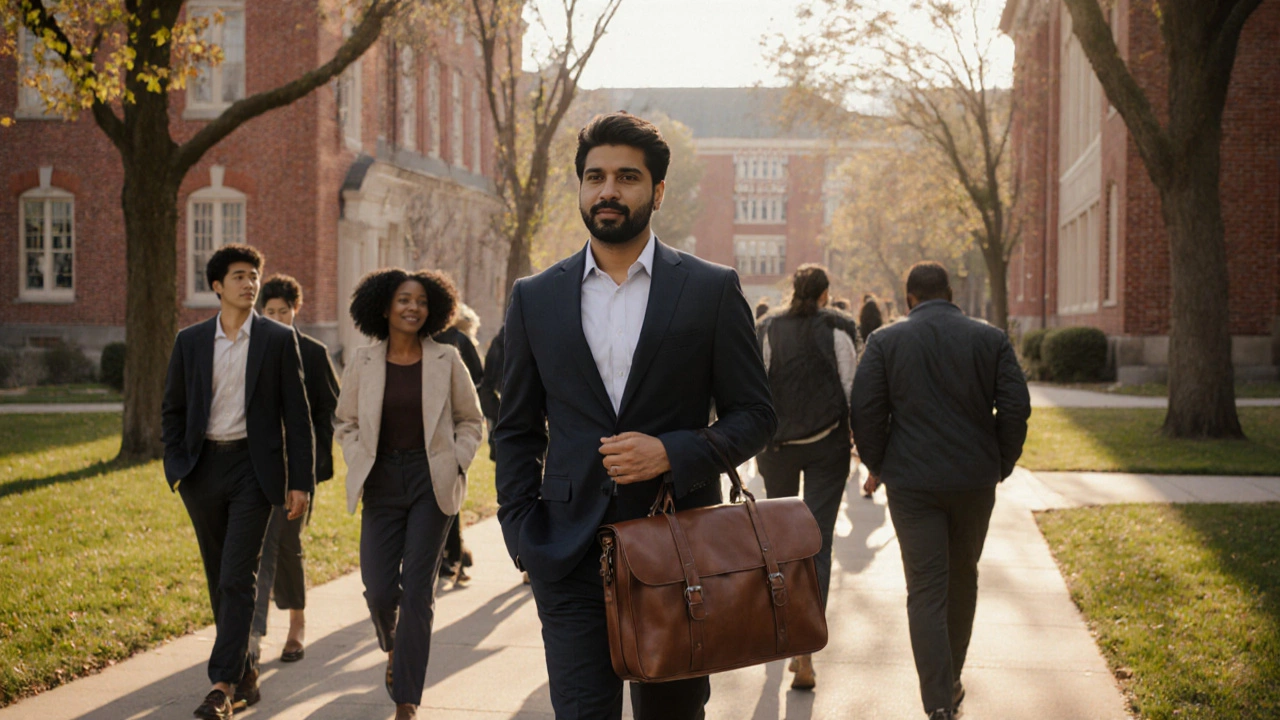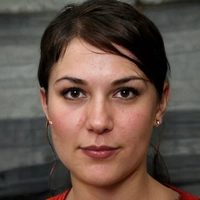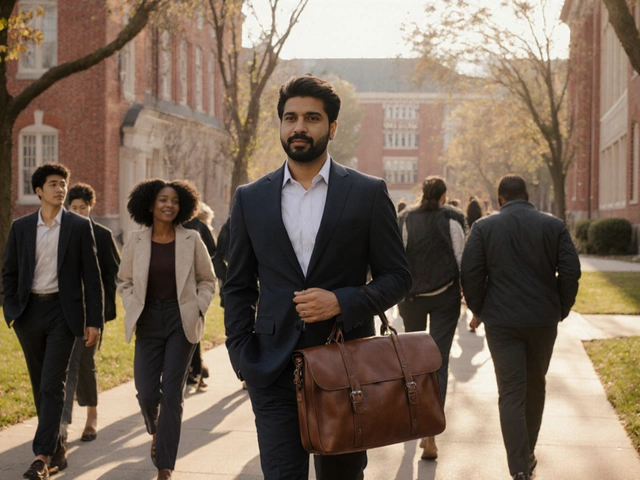Harvard MBA is a two‑year, full‑time master’s program offered by Harvard Business School that attracts leaders from around the globe. Admissions committees look for high achievement, strong leadership potential, and the ability to contribute to a diverse class. While the average student is in their late 20s, many candidates join in their 30s and beyond.
Key Takeaways
- Harvard Business School’s average class age is 27‑28, but the age range often spans from early 20s to mid‑40s.
- Applicants aged 35+ can be competitive if they demonstrate clear career progression, leadership impact, and a compelling post‑MBA vision.
- Strengthen your profile with strong GMAT/GRE scores, solid recommendation letters, and a narrative that ties past experience to future goals.
- Consider Harvard’s Executive Education programs as alternatives that value senior‑level experience.
- Age alone is not a disqualifier; fit, achievements, and potential matter more.
Understanding Harvard’s Class Profile
The most recent HBS class (2025) reported an average age of 27.8 years, with a standard deviation of about 3.5 years. The youngest 10% were under 24, while the oldest 10% were 35 or older. This shows that a 35‑year‑old applicant sits at the upper end of the typical distribution, not outside it.
Harvard publishes a class profile that includes:
- Average work experience: 4.7 years (range 2‑10 years).
- GMAT average: 730 (percentile 96).
- International students: 35% of the class.
- Industry representation: consulting, finance, technology, healthcare, and non‑profit.
Seeing a 35‑year‑old on the list should reassure you that the school values seasoned professionals.
What Admissions Looks for at 35+
When you’re older, the committee expects you to have:
- Progressive responsibility. Show a clear upward trajectory - from analyst to manager, or from specialist to director.
- Leadership impact. Quantify results: revenue growth, cost savings, team size, product launches, etc.
- Clarity of purpose. Explain why you need an MBA now and how it will bridge your current experience to a specific future role.
- Academic readiness. A high GMAT/GRE score (above 720) or a strong academic record helps offset concerns about being out of school for a while.
- Diversity of perspective. Your industry, geography, or life experiences should enrich class discussions.
In short, the focus shifts from potential to proven impact and a well‑defined next step.
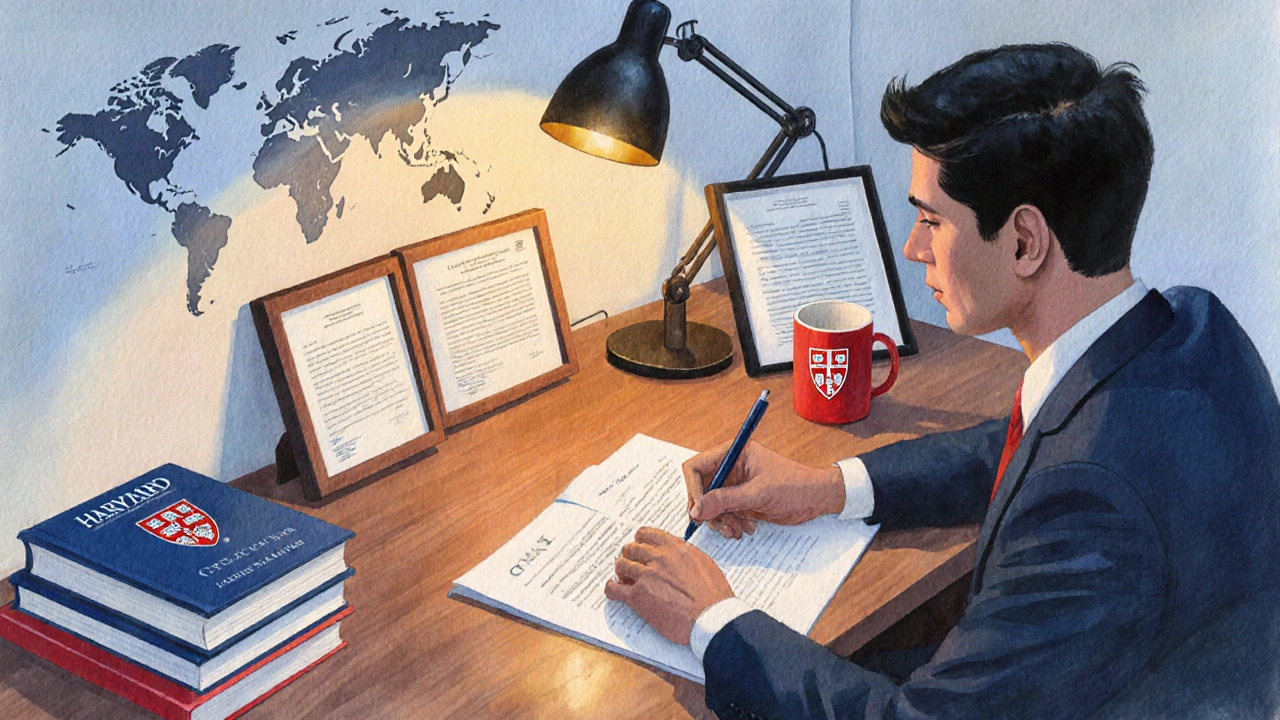
Boosting Your Application at 35
Here are concrete steps to make your candidacy stand out:
- Target a GMAT of 740+ - this signals quantitative ability despite a career gap.
- Secure two recommendation letters from senior leaders who can speak to your strategic influence.
- Craft a narrative that ties past achievements to a future vision - e.g., “I will use the HBS network to launch a health‑tech venture focused on senior care.”
- Show continuous learning: certifications, executive courses, or publications demonstrate intellectual curiosity.
- Engage with Harvard’s alumni or attend virtual information sessions to demonstrate genuine interest.
Alternative Paths at Harvard for Senior Professionals
If the traditional full‑time MBA feels like a stretch, Harvard offers programs that cater to experienced leaders:
| Program | Target Age | Program Length | Typical Work Experience | Key Benefits |
|---|---|---|---|---|
| Full‑time Harvard MBA | 24‑35 (average 27‑28) | 2 years | 2‑10 years | Immersive cohort, alumni network, campus resources |
| Harvard Business School PLD (Program for Leadership Development) | 30‑45+ | 1 year (part‑time) | 10‑20 years | Executive‑level curriculum, on‑site modules, peer learning |
| Harvard Executive Education Short Courses | All ages | 1‑10 days | Varies | Focused skill upgrades, no degree, flexible schedule |
These alternatives let you leverage Harvard’s brand while staying in a senior role.
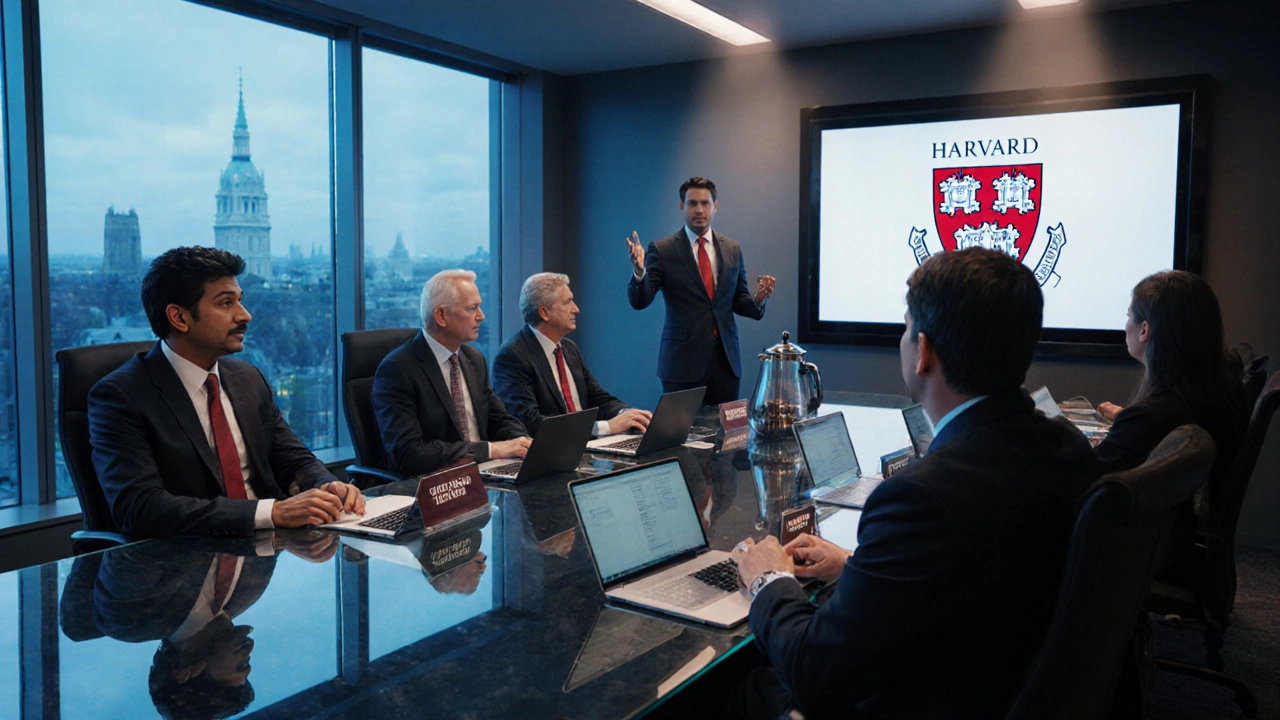
Real‑World Stories
John, a 36‑year‑old product manager from Berlin, entered HBS in 2022 after a 10‑year tech career. He scored 750 on the GMAT, highlighted a product launch that generated $30M in revenue, and wrote a clear essay about pivoting to a venture‑building role. He graduated with a 2‑year post‑MBA salary increase of 45%.
Sara, 38, from Mumbai, chose the PLD route because she was already a senior director. The program’s modular format allowed her to keep leading her team while earning a Harvard credential, which opened doors to board positions.
These examples prove that age is just one data point; impact and intent matter more.
Checklist for 35‑Year‑Old Applicants
- Review the latest class profile - note average age and experience.
- Set a GMAT target ≥740 or a GRE equivalent.
- Identify two recommenders who can speak to strategic leadership.
- Draft a 150‑word “post‑MBA vision” that links current expertise to future goals.
- Research Harvard’s executive options as backup plans.
- Schedule alumni calls and virtual sessions to gather insider insights.
- Prepare a timeline: GMAT → essays → recommendations → application submission.
Frequently Asked Questions
Is there an official age limit for the Harvard MBA?
Harvard does not set a strict age ceiling. The admissions team evaluates each candidate based on experience, leadership, and future potential, regardless of age.
How does a 35‑year‑old applicant’s work experience compare to the average?
A 35‑year‑old typically has 8‑12 years of professional experience, which is above the average 4‑5 years. This can be a strength if the experience shows progression and impact.
Will a lower GMAT score hurt my chances more because I’m older?
A lower score can raise questions about academic readiness, especially if you’ve been out of school for several years. Aim for a score in the 730‑750 range to offset any age‑related concerns.
Should I apply to the Harvard Executive Education programs instead?
If you want a full degree but are already in a senior role, the PLD (Program for Leadership Development) offers a Harvard‑branded experience with a schedule that fits working executives. It’s a solid alternative to the full‑time MBA.
What are the most common mistakes older applicants make?
They often assume age alone is a barrier and neglect to showcase recent achievements. Another mistake is not tailoring the essay to explain why an MBA now, rather than earlier, adds value to their career.
